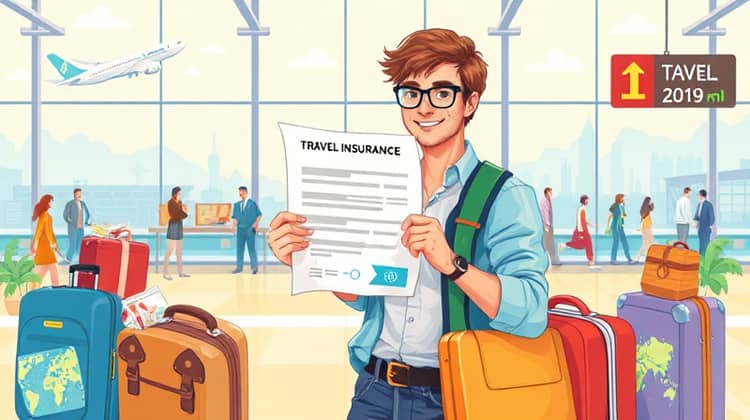Planning a vacation can seem overwhelming, but with the right approach, it can be an enjoyable process that sets the stage for a memorable trip. Whether you're dreaming of a relaxing beach getaway, an adventurous mountain trek, or a cultural exploration of a bustling city, careful planning can make all the difference. Here are the top ten tips to help you plan your next vacation like a pro.
1. Start Early

The earlier you start planning your vacation, the better. This gives you ample time to do your research, find the best deals, and make arrangements without feeling rushed. Ideally, you should begin your planning process at least a few months in advance to gain access to the best accommodations and transportation options.
Starting early also allows you to take advantage of any early bird discounts available for flights, hotels, and activities. These savings can greatly enhance your travel budget and enable you to indulge in additional experiences during your trip.
Moreover, when you plan ahead, you have the luxury of time to consider and discuss different options with travel companions, making the planning process a group effort that everyone can enjoy.
2. Set a Budget

Setting a budget is crucial in ensuring that your vacation planning does not result in financial stress. Start by calculating how much you can realistically spend, considering all aspects of your trip including transportation, accommodation, food, activities, and souvenirs.
When establishing a budget, it's helpful to create a detailed list of estimated costs. This will allow you to identify where you can splurge or save, and you can adjust your plans accordingly. Be sure to include a buffer for unexpected expenses; it's always wise to have a little extra for emergencies or spontaneous fun.
Lastly, don't forget to keep track of your spending as you plan. This will help you stay within your budget and avoid any unpleasant surprises when it comes time to settle the bill.
- Transportation (flights, car rentals, public transport)
- Accommodation (hotels, hostels, Airbnbs)
- Food and dining (restaurants, groceries, snacks)
3. Choose Your Destination

Choosing your destination is one of the most exciting parts of planning your vacation. Start by considering what type of experience you desire: a cultural adventure, a relaxing beach escape, or perhaps something more adventurous like hiking or skiing.
Think about the time of year you plan to travel and how it may affect your choice of destination. Certain places may be more enjoyable during specific seasons, such as ski resorts in winter or tropical beaches in summer.
Don't forget to consider your personal interests and the interests of those traveling with you. Choosing a destination that excites everyone will ensure a much more enjoyable and engaging experience for the entire group.
4. Research Your Destination

Once you've selected a destination, it's time to dive into research. Understanding the local culture, customs, and language can greatly enhance your travel experience and help you navigate your destination more easily.
You should look into key attractions and activities available, as well as local tips from fellow travelers. Online forums, travel blogs, and social media platforms are great resources for finding advice on hidden gems and must-see sites in your chosen location.
- Local customs and etiquette
- Safety tips and health information
- Popular attractions and activities
5. Plan Your Accommodation

Finding suitable accommodation is essential for a comfortable trip. Think about what kind of lodging best fits your needs, whether it’s a hotel, resort, Airbnb, or hostel. Each option comes with its pros and cons, so weigh them accordingly.
Your choice may depend on your budget, the number of travelers, and the location relative to attractions. For example, staying closer to the activities you want to do can save you time and transport costs, but you might pay a premium for that convenience.
Furthermore, read reviews from other travelers to ensure that the place you choose meets your expectations in terms of cleanliness, service, and overall quality.
6. Transportation Considerations

Transportation can make or break your vacation experience. Begin by figuring out how you will get to your destination and once there, how you will get around. This includes booking flights, renting cars, or planning public transportation and infrastructure.
If you’re traveling internationally, make sure to check visa requirements, local driving laws, and if you need to obtain an International Driving Permit (IDP) if you plan on driving abroad. Additionally, be conscious of the costs of different transportation options as they can vary significantly depending on where you are.
Always compare different car rental companies, taxi and ridesharing services, and public transport options before your trip to find the best and most cost-effective means to navigate.
Lastly, don’t forget to download any relevant apps that can help you during your travels such as navigation tools, ridesharing apps, or local transportation schedules.
7. Pack Smart

Packing can seem daunting, but it doesn’t have to be! Start by making a packing list to ensure you don’t forget any essentials, and remember to check the weather forecast for your destination to help guide your choices.
Consider the activities you have planned and pack accordingly. For instance, if you’re going hiking, make sure to bring suitable footwear and gear. If you will be dining out at nice restaurants, pack some dressy clothes too.
Utilizing packing cubes can significantly help organize your luggage and make packing and unpacking quicker and easier.
- Essentials (passport, tickets, ID)
- Clothing appropriate for the weather and activities
- Chargers for your devices
8. Plan Activities in Advance

While it's tempting to leave activities spontaneous, planning them in advance can ensure that you get to experience all of the highlights your destination has to offer. Research and book any must-do activities ahead of time, especially during peak tourist seasons.
Consider creating an itinerary that includes both reserved activities and free time to explore at your leisure.
- Book popular attractions that may sell out
- Reserve dining experiences at highly-rated restaurants
- Plan day trips to surrounding areas of interest
9. Travel Insurance

One critical yet often overlooked aspect of planning a vacation is travel insurance. While no one likes to think of emergencies, being prepared can save you significant hassle and potential financial loss.
Travel insurance can cover cancellations, medical emergencies, lost luggage, and more. Make sure you understand what your policy covers before you purchase it and consider any specific needs you might have during your travels.
Always read the fine print and choose a reputable provider to ensure that you have adequate coverage throughout your trip.
10. Be Flexible

Despite careful planning, things may not always go as expected. Being flexible with your plans can ease frustrations should changes arise during your trip, whether due to weather conditions, unexpected closures, or personal preferences shifting.
Allowing extra time in your itinerary for spontaneous adventures can lead to wonderful discoveries that you may not have otherwise planned for. Embrace the unexpected!
Lastly, keeping a positive attitude can turn any hiccup into a fun story to share about your vacation, so roll with the punches and enjoy the journey.
Conclusion

Planning a vacation doesn’t have to be a challenging task if you approach it methodically with these straightforward tips. Starting early, setting a budget, and making informed decisions about your destination and activities can lead to unforgettable experiences.
So, take a deep breath, start your planning, and look forward to making wonderful memories on your next vacation!














